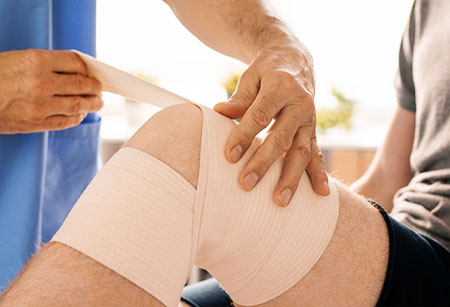Smoking & Surgery
If you are a smoker, this blog post will shed some light on why you should stop smoking before surgery, and the serious complications that may arise during and after surgery. Do note that this information is generalised and not just specifically for orthopaedic surgery.
Before surgery
Having an operation can be seen as a great opportunity to quit smoking. The chemicals in cigarette smoke affect the rate at which certain drugs break down in your body, meaning that you may require more anaesthetic and pain-relieving medication post-surgery. It is important to notify your anaesthetist if you smoke and discuss your options prior to your surgery.
To have the best results, you should aim to quit smoking at least eight weeks before your surgery. The only way to stop and reverse any damages done by cigarettes is to quit completely—there is no guarantee that merely cutting down in the weeks leading up to an operation would reduce risks of wound or lung complications. However, if you have not yet quit, stopping smoking for at least 12 hours before surgery would still be beneficial.
During surgery
If you continue smoking right up until your surgery, you may be more likely to:
- Starve your heart of oxygen
Nicotine in cigarette smoke increases your heart rate and blood pressure causing your heart to work harder, thus requiring more oxygen. Carbon monoxide, which is also found in cigarette smoke, uses up the oxygen in your blood, making it harder to get the oxygen you need for your heart and body.
- Form blood clots in your veins
Chemicals in cigarette smoke make your blood thicker, stickier and more likely to clot. Unusual blood clots may cause heart attack, stroke, or other serious medical problems.
- Have difficulty breathing during and after surgery
There might be higher rates of lung complications in smokers post-operation, compared to those who stopped smoking for at least eight weeks pre-operation. The chemicals in cigarette smoke could paralyse or destroy the cilia in your lungs (tiny, broom-like hairs that work to keep your lungs clear). As a result, mucus could build up in your lungs and you may develop narrower airways. It is also possible that your lung might collapse, making it harder to breathe.
- Hinder the healing of bones, skin, and wounds
Smoking could decrease your resistance to infection, and you may have a higher risk for chest and wound infections after surgery. You might experience longer healing times, problems with new scars opening up, and bad scarring. Smoking would also slow down and disrupt the healing of bones and other body tissues.
After surgery
It is important to not start smoking again after surgery, even if you have quit only 12 hours before surgery. Smoking would make recovery more difficult by:
- Stressing your heart
- Affecting blood pressure
- Reducing oxygen in your blood and body tissues
- Damaging your lungs
By quitting smoking well in advance, you could have a faster recovery, better wound healing, and a shorter stay in the hospital.
How to quit
- Get support
The Quitline hotline has experienced counsellors who are available seven days a week to assist you through the process of quitting. Call Quitline at 13 QUIT (13 7848) for free information, practical assistance, and support.
- Talk to your health professional
Discuss quitting smoking with your GP, pharmacist, or community health worker. Together, you can plan a strategy to quit smoking once and for all.




